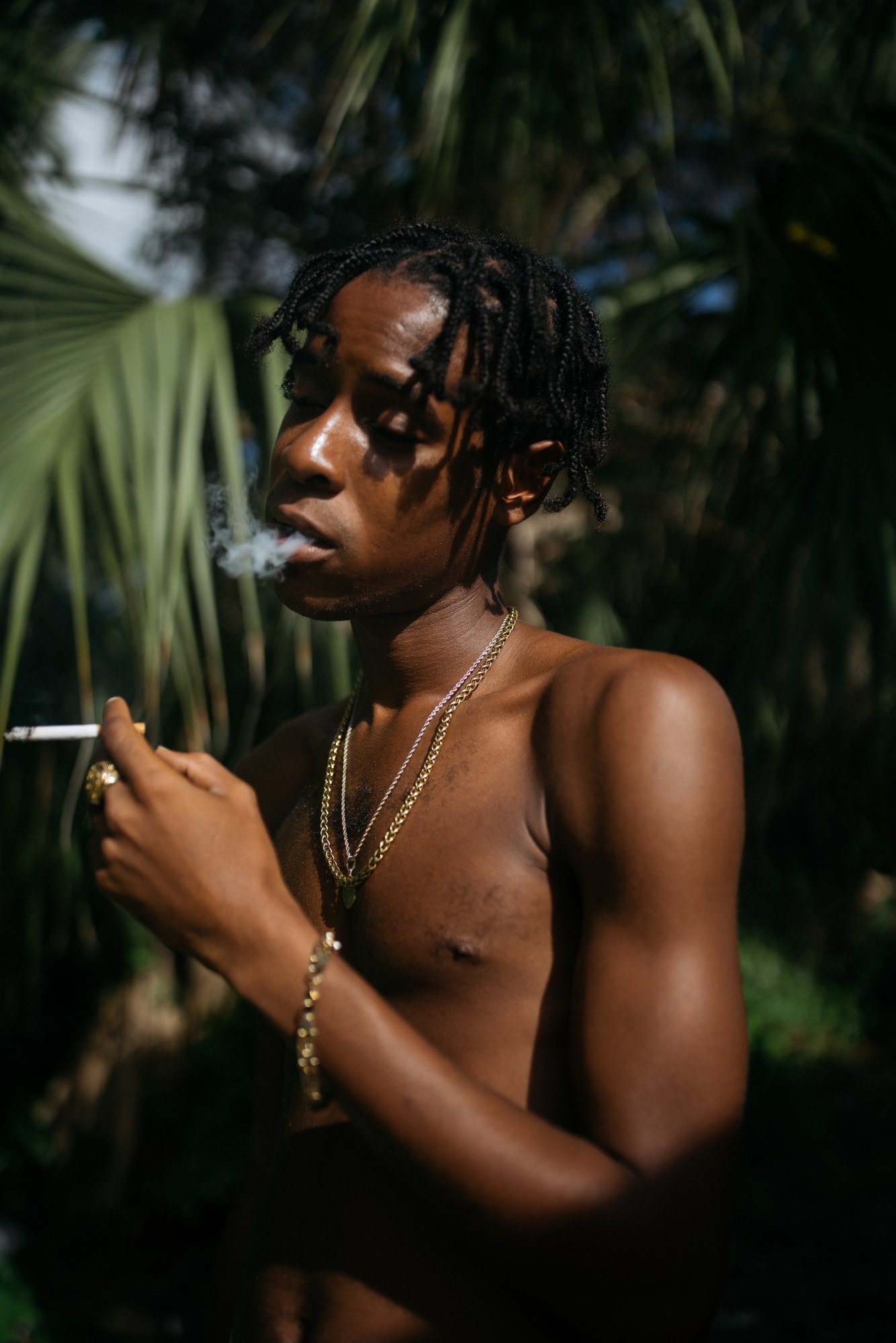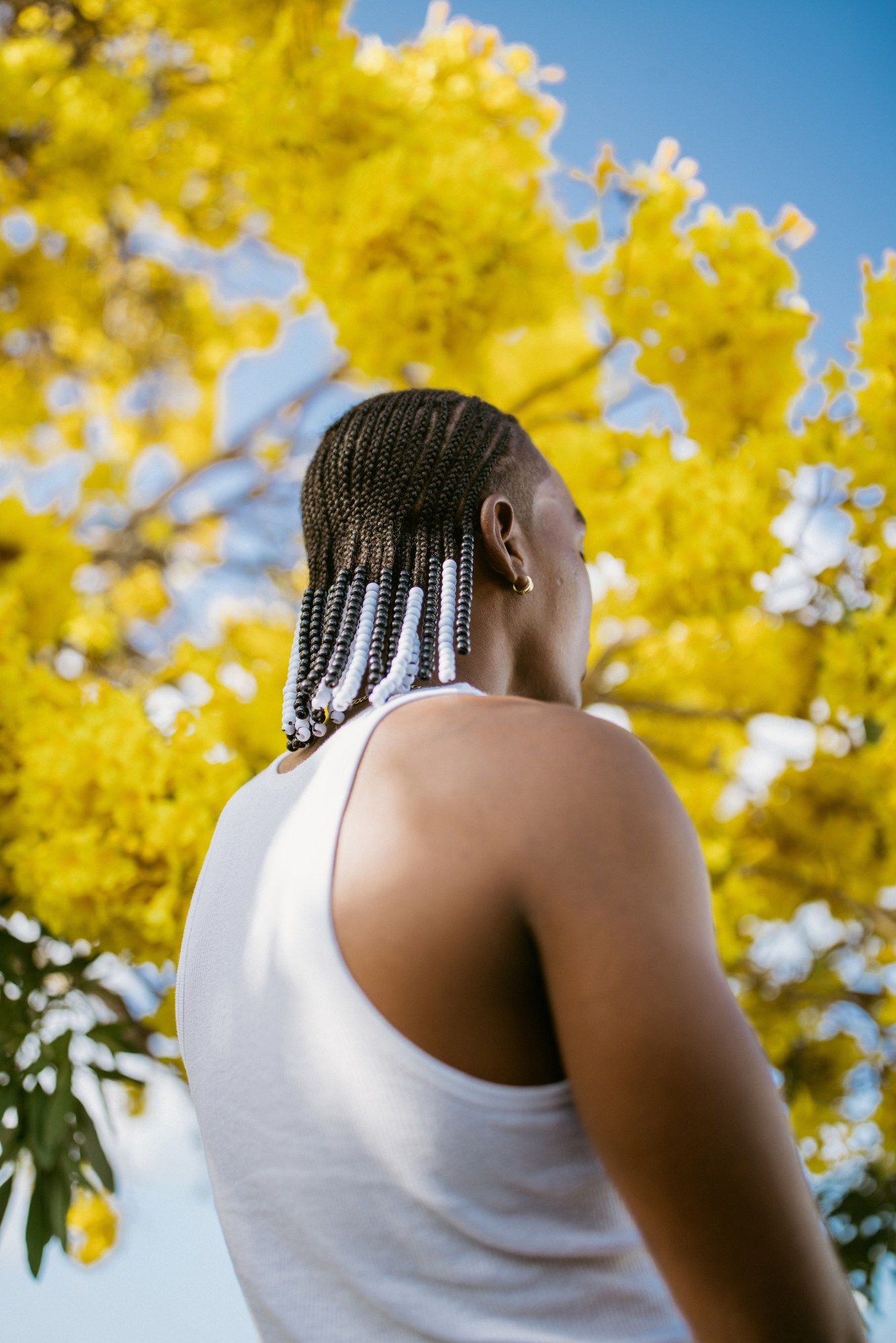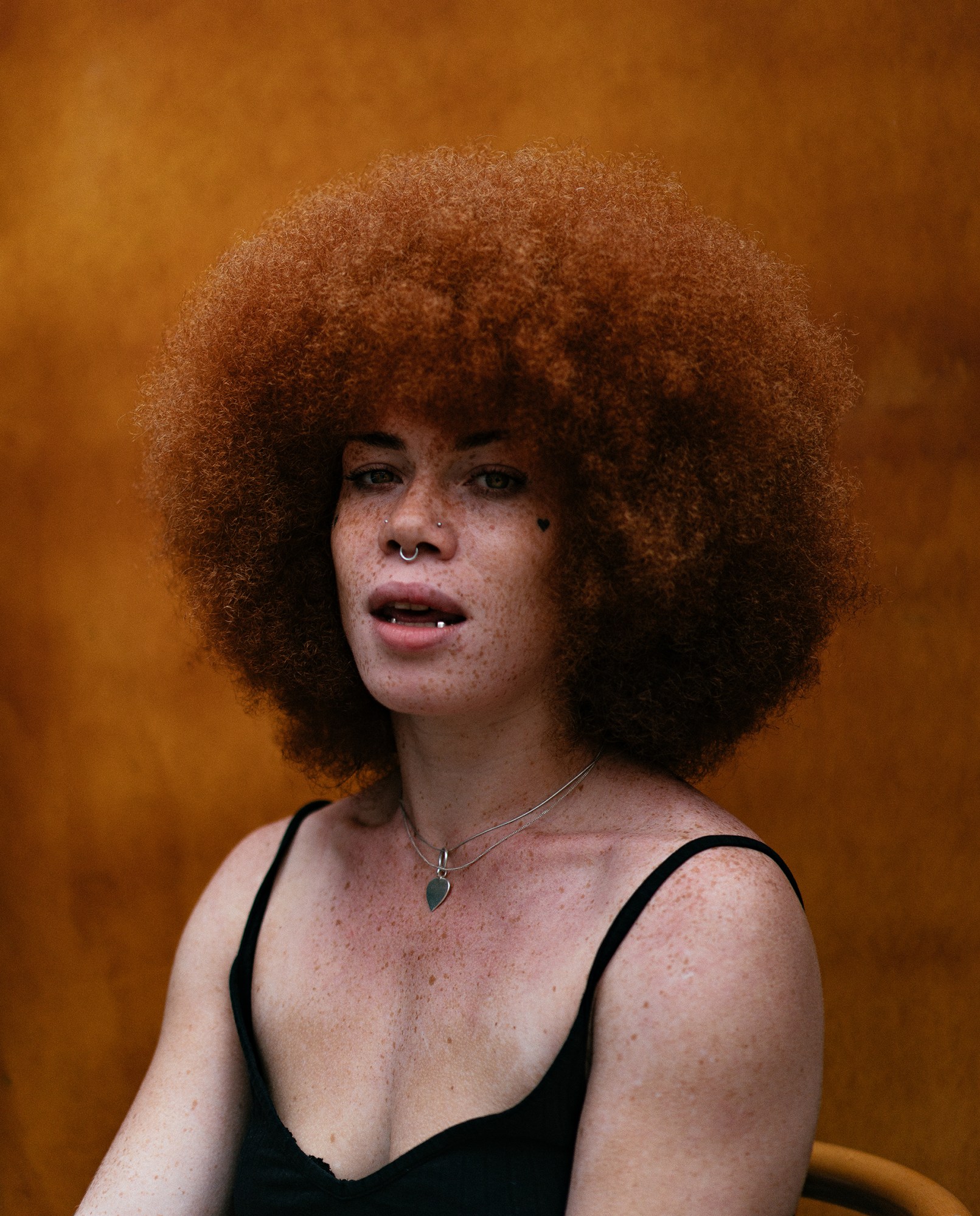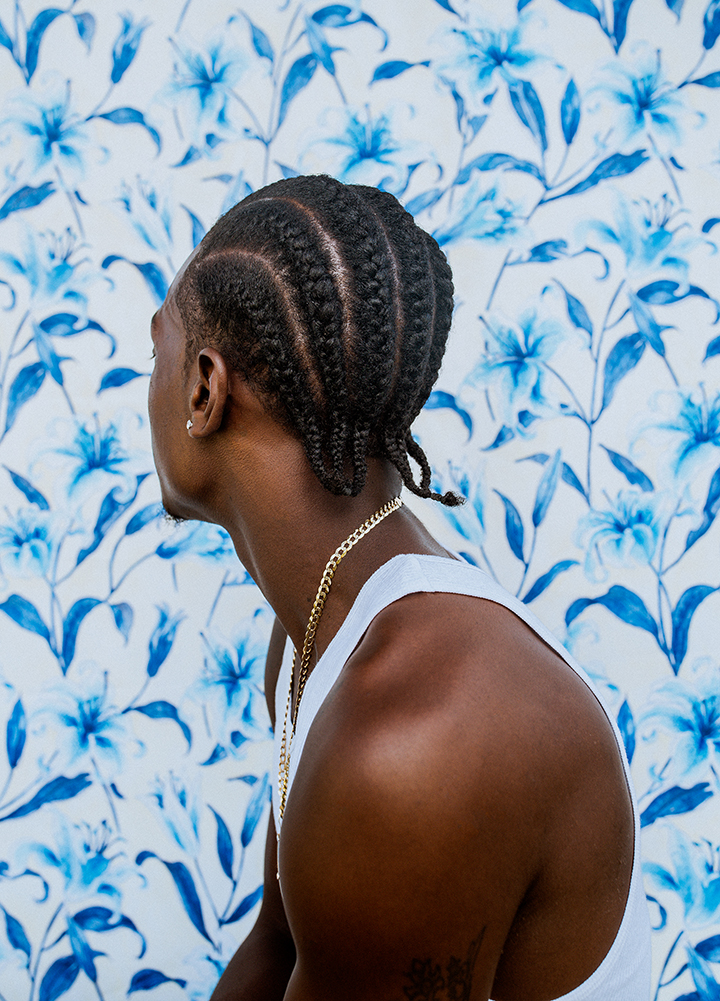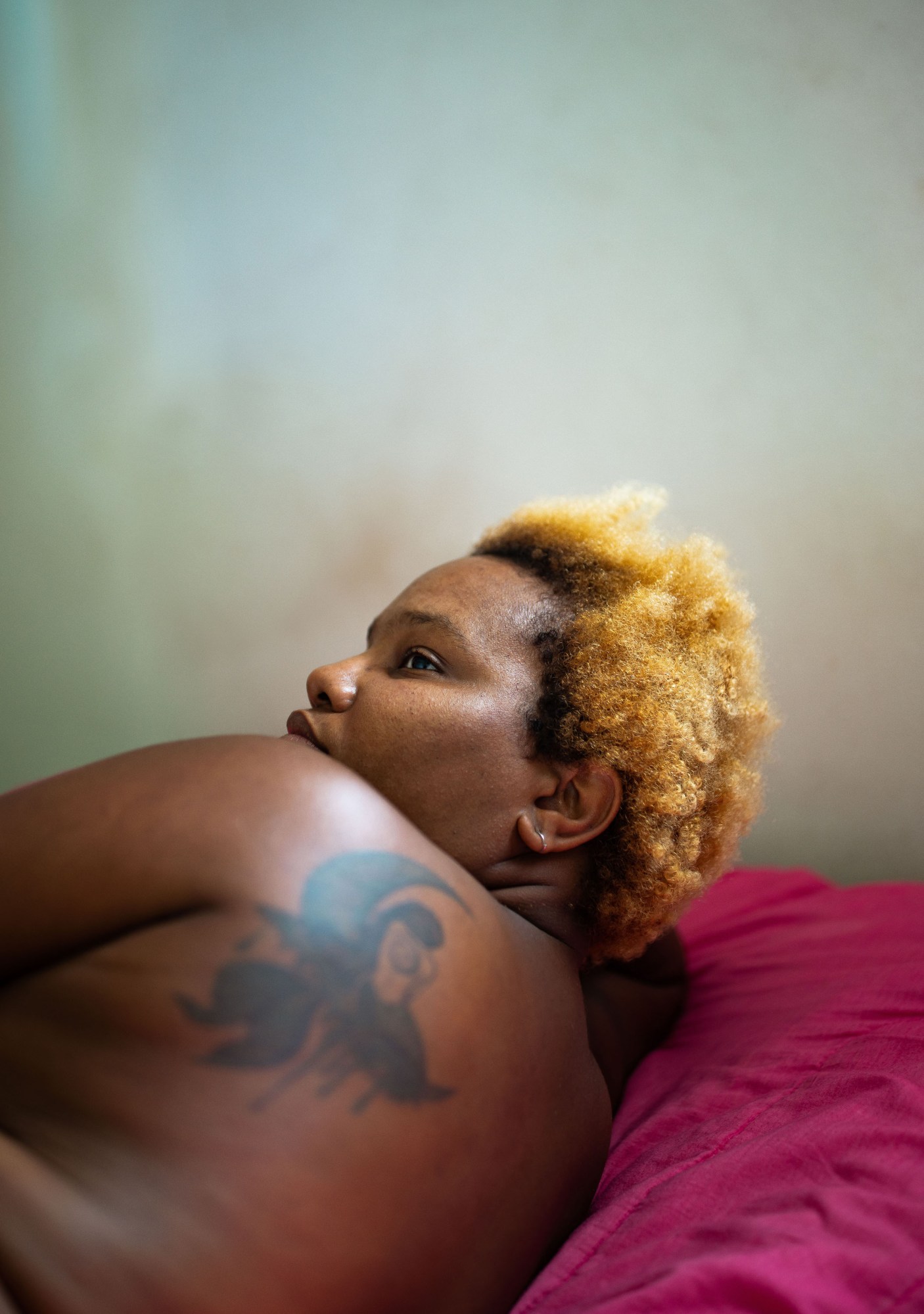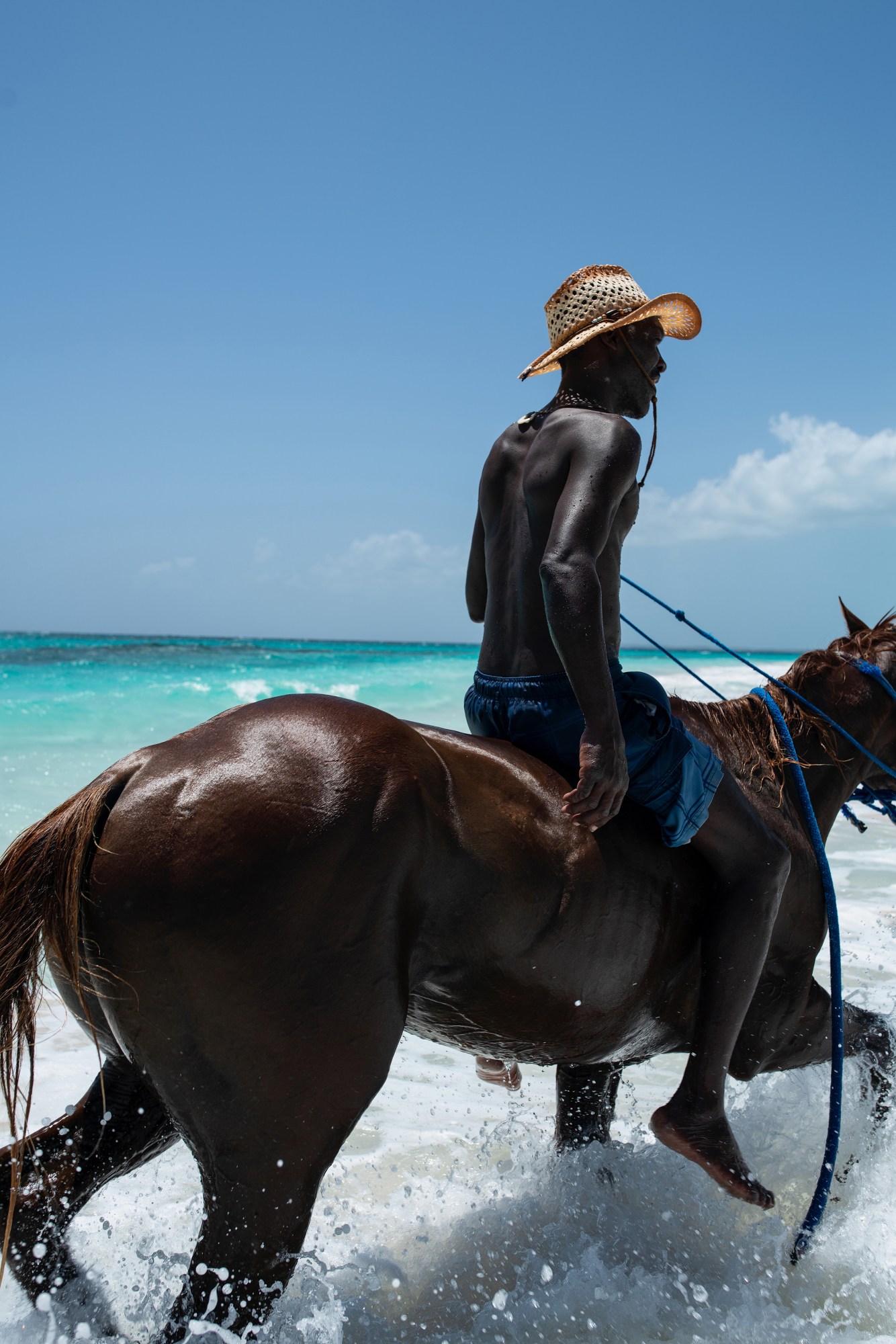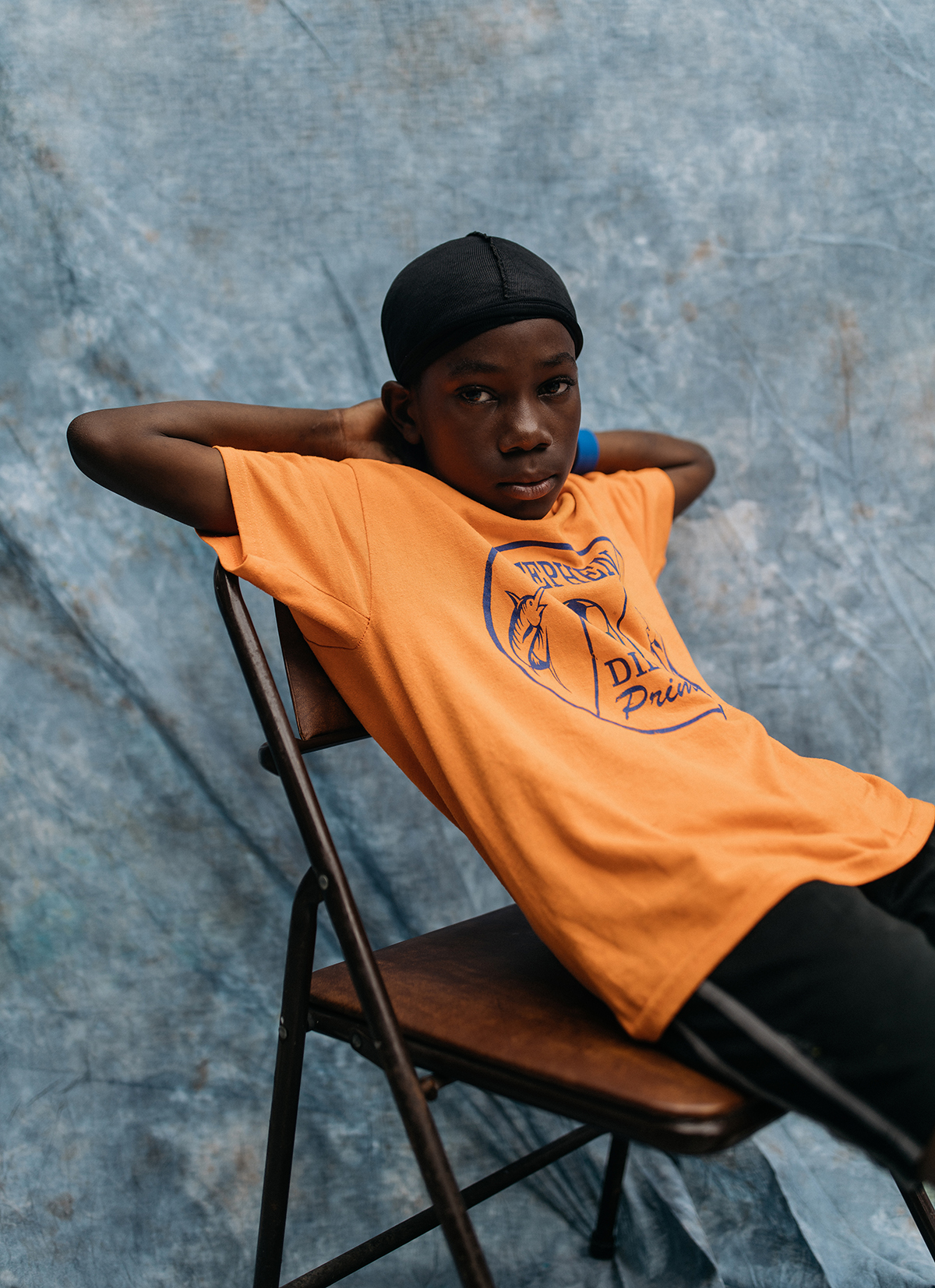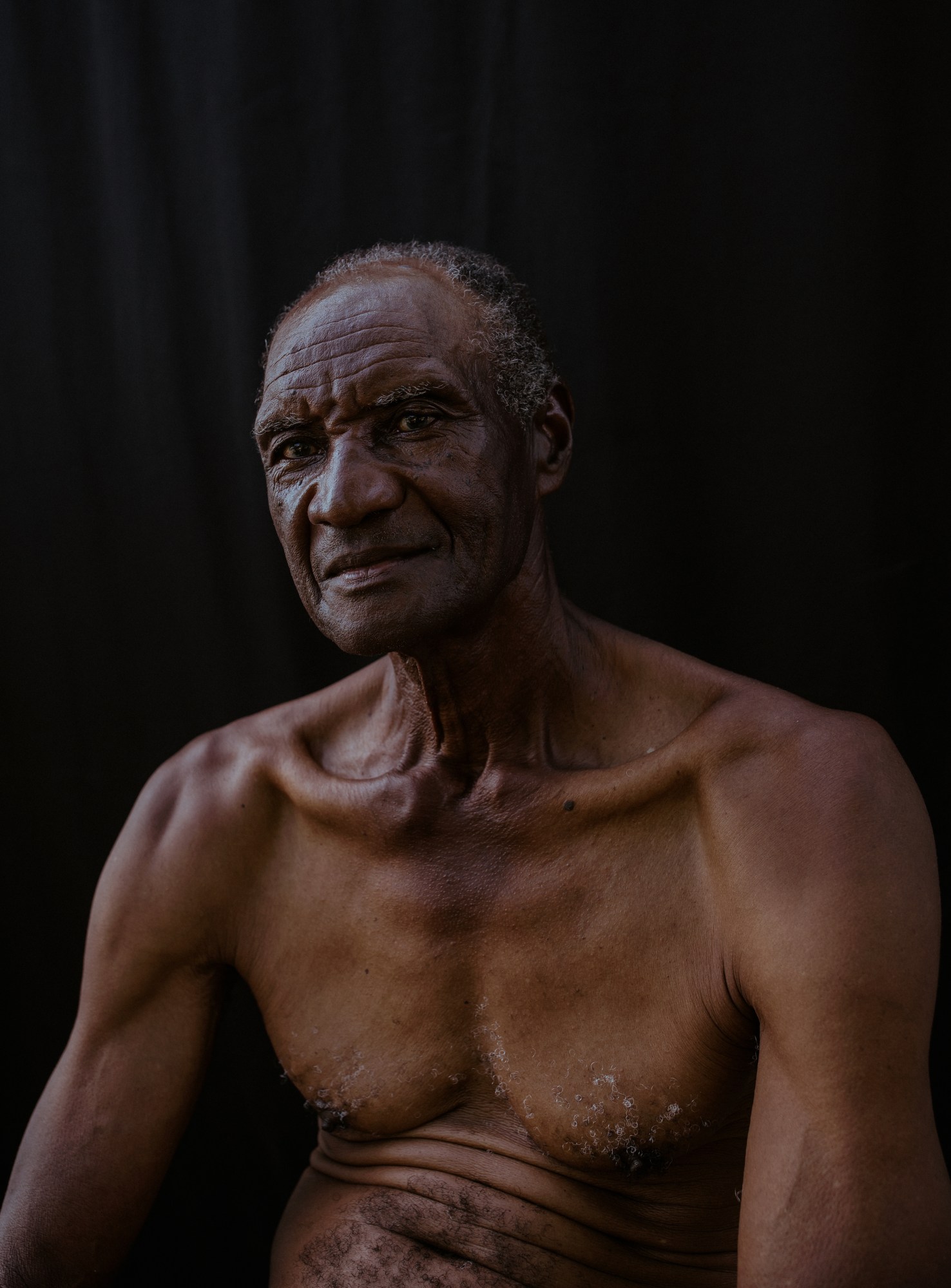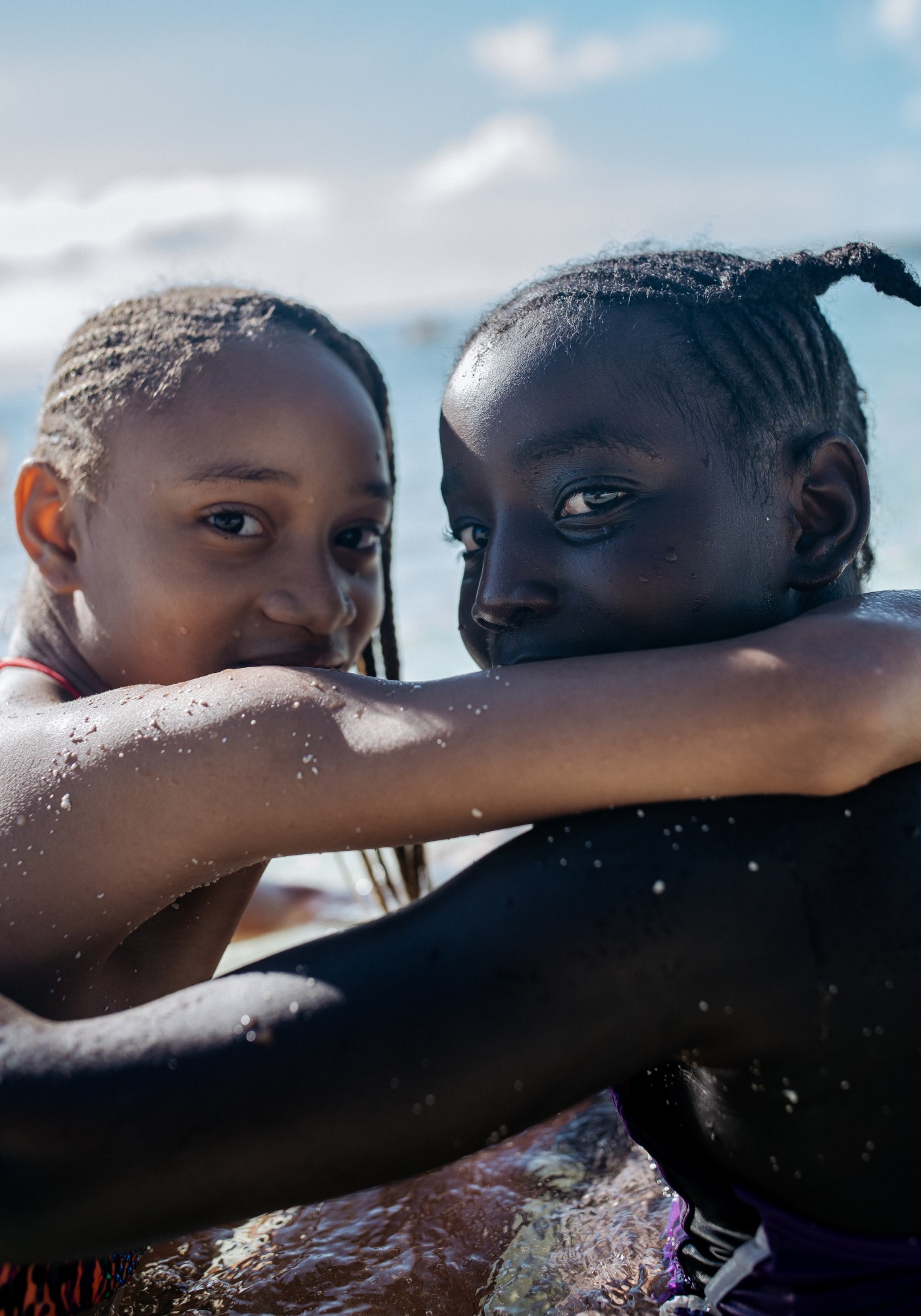Bahamian-born photographer Melissa Alcena is guided by feeling. She’s extremely passionate — expressing herself in sounds and goosebumps when words fail, and taking really big gasps when excitement is forced to transcend the body. “What’s inside of me is sometimes very hard for me to describe, because it’s a feeling that I’m hoping I get out in an image,” she says. “Then I show people and they get it. That’s my language. My language is visual.”
Inspired by the African photo books that her father collected when she was young, Alcena is committed to capturing the beauty of Black life in her work. “I think that was my first introduction into how beautiful Black people are,” she says of the books. “I just didn’t see any other photos of Black people unless they were family members. So, for me that was like, ‘wow.’”
Since that moment, Alcena has made it her mission to celebrate those she photographs and situate her subjects in a way that forces people to see them. Based in Nassau, Bahamas, her work aims to shift the paradise narrative of the Caribbean by depicting Bahamians in their ordinary, everyday lives. Recently, she was featured in the See in Black project, which aims to amplify Black photographers’ work, and did an Instagram takeover for New Yorker Photo, where she posted a few photos from her practice over the course of several days.
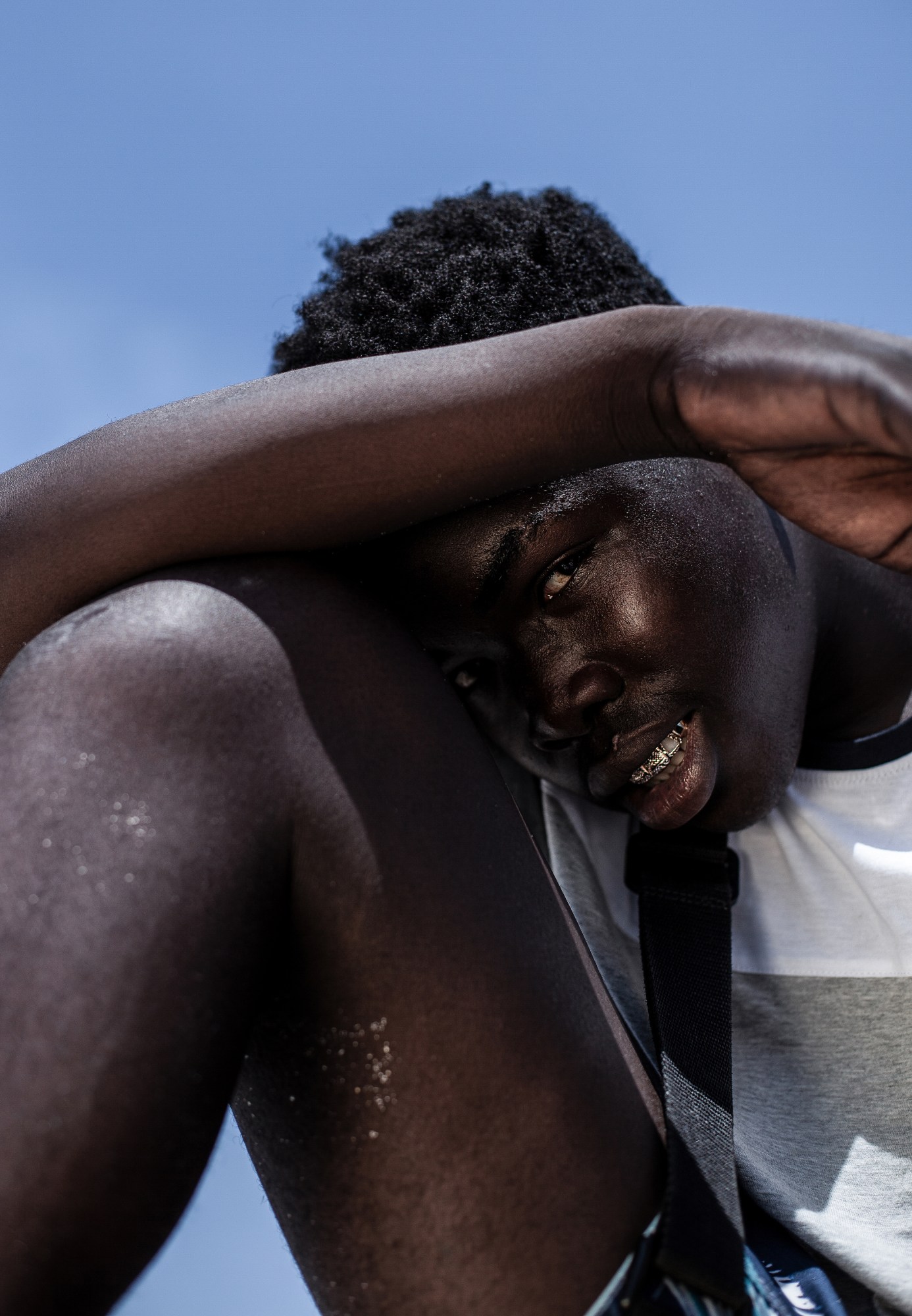
Her portraits are intimate and tender, paying respect to those in front of the camera. She’s concerned with fostering community and often engages in conversations with her subjects. This desire to connect was fostered at the start of her career. Alcena decided to attend college in her early twenties, graduating from Sheridan College in Ontario, Canada in 2012, with a degree in applied photography. When she returned to the Bahamas after completing school, she felt lost and uninspired. It was then that she started taking photos. “I started taking self-portraits. If I got dressed, showered, put on a face and ate something, just to take that portrait and then take it all off and go back to sleep, then that was something.”
From there, she began photographing people around town, and posting the shots on Instagram. This routine proved to be quite therapeutic. “It became a way for me to connect to my culture on a level that I had never connected to it before,” Alcena explains. Then slowly I just started collecting all these images of people. When they would see the photos and just light up, I felt so good. I felt like I was actually helping somebody. I started learning photography all over again.”
Her photography technique is also rooted in reverence and care. For example, she captures subjects at eye level, as opposed to shooting down. “I realized that I wanted to uplift our people in my photos. So, to this day I only ever take photos of people either face-on as if we’re talking, or shooting up. I realized something as small as that is so powerful because it changes the whole narrative of what you’re trying to say. Are you meeting me face-on, or are you looking down on me? I think that’s really important.”
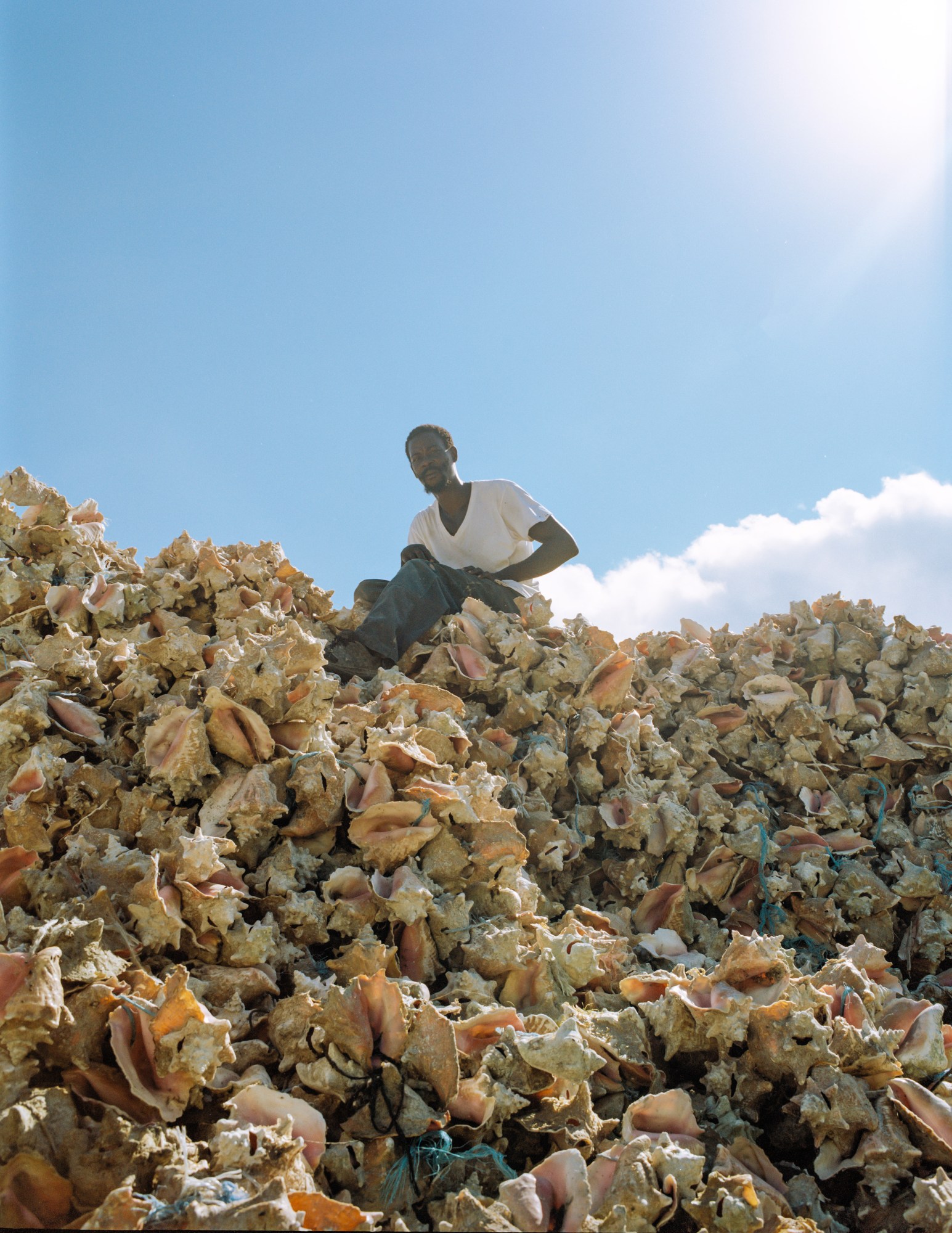
When asked what her most memorable interaction with a subject is, it’s hard for her to pick just one, but Alcena spoke about one moment that was particularly transformative. “I had taken this photo of a man with his daughter on his shoulders, and then a year later I’m driving with my partner on these dirt roads. I’m about to turn around, and he spots this wall of conch shells,” she says, adding that the shells belonged to that same man she photographed a year prior, Cassell, who makes conch salad for a living. “All of these conch shells were from everything that he’s done. The impression I got from him was that he was a single father, because his little girl was in the back. They didn’t have any electricity, and they were thriving. We just started talking about what it takes to take care of yourself and to pursue your dreams. He talked to me about his faith and his religious beliefs, and ours were different, but it was just enlightening. We were able to meet each other on a level like we knew each other.”
This open and transparent connection is Alcena’s favorite part of the job, allowing subjects to give her a portion of themselves that she then tries her best to portray. “I find photography a wonderful way that I can have a good exchange of information between people, and then the photo is the memory of that interaction and me saying, ‘Look at this person. Now I know something about you and now I can represent you well.’”
When asked what she wants viewers to take away from her photos, she’s adamant that the subjects deserve your full attention. “I want you to look at this person and I want you to respect them in all their glory. I’m trying to celebrate the beauty that I see in people and the many forms that they come in,” Alcena says. “You know in certain cultures when they don’t let you take pictures of them because you’re capturing a piece of their soul? I actually feel that happens sometimes. I think that’s when I get those goosebumps, because energy doesn’t die. It has to go somewhere.”
